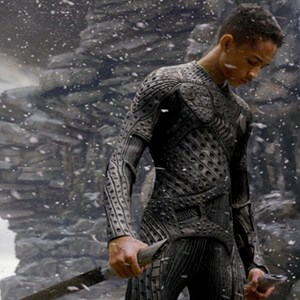This has to be the end for him, right?
Surely, we can’t get another one, can we?
I hereby declare After Earth the final nail in M. Night Shyamalan’s directorial coffin. If I am wrong, and he returns, we all lose. It really is a shame seeing the deterioration of the man as a writer maybe even more so than a director. The Sixth Sense was an awe-inspiring debut, and fanboys across the landscape cite his follow up, Unbreakable, as his best film (include me in that opinion). Even though Signs was a smash hit, things began wobbling. Then came the trifecta of The Village, Lady in the Water, and The Happening, each worse than the previous, followed by the disastrous adaptation of The Last Airbender. And that is where we find After Earth, M. Night Shyamalan’s latest step in his long and painful death march. Here is the very definition of laziness in storytelling.






